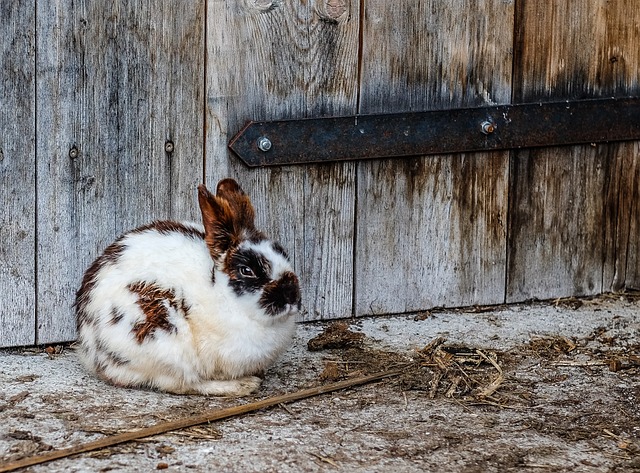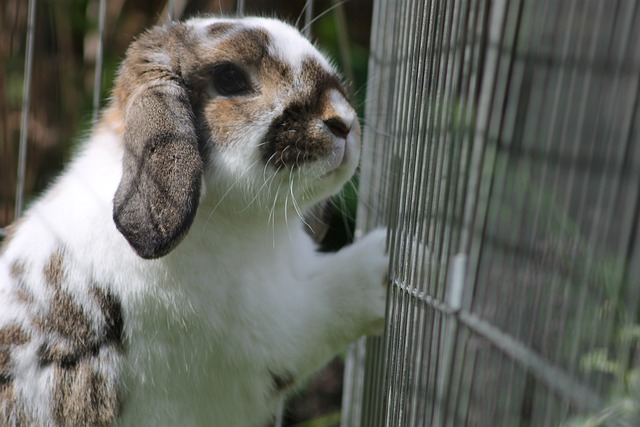How Long Can a Rabbit Survive Without Water

Rabbits, like all living creatures, rely on water for their survival. Understanding the importance of adequate hydration is crucial for ensuring the well-being of these small mammals. In this article, we delve into the fascinating world of rabbit water needs, exploring the factors that influence their ability to survive without water, the physiological effects of dehydration, and the strategies rabbits employ to cope with water scarcity. By examining case studies, research findings, and practical tips for rabbit owners, we aim to shed light on the essential role of water in sustaining the health and vitality of these endearing animals.

Introduction to Rabbit Water Needs
Rabbits may not pack a canteen, but hydration is crucial for their hopping health. Water keeps these adorable furballs running smoothly, both inside and out.
- Importance of Water for Rabbit Health
Water isn’t just a thirst-quencher for rabbits—it’s a lifeline. From digestion to temperature regulation, hydration is key to keeping bunnies bouncing with vitality.
- Rabbit Water Consumption Patterns
Rabbits have a sipping schedule that would make a tea connoisseur proud. Understanding their water-drinking habits can help ensure they stay properly hydrated.
Factors Affecting Rabbit Survival Without Water
Though rabbits are tough cookies, there are limits to their water-free endurance. Various factors can impact how long they can go without a sip.
- Environmental Conditions
Extreme heat or arid environments can turn a rabbit’s water crisis into a desert drama. Climate plays a big role in how well bunnies can cope without water.
- Rabbit Age and Health
Just like granny needs her meds, older or sick rabbits may struggle more when water is scarce. Age and health can influence a bunny’s ability to tough it out without a drink.
- Physiological Effects of Dehydration on Rabbits
Dehydration isn’t just a bad day at the bunny spa—it can have serious consequences for a rabbit’s well-being.
- Dehydration Symptoms in Rabbits
From dry skin to drowsiness, rabbits give subtle hints when they’re running low on fluids. Recognizing these signs can help prevent dehydration-related woes.
- Impact of Dehydration on Rabbit Organ Function
When a rabbit’s water tank runs low, their organs feel the pinch. Dehydration can throw a wrench in the works of vital physiological processes, affecting overall health.
- Survival Strategies and Adaptations of Rabbits
Rabbits aren’t just fluffy bundles of nerves—they’ve got some neat tricks up their paws when it comes to conserving water and dealing with scarcity.
- Rabbit Water Conservation Mechanisms
From concentrated pee to strategic chilling, rabbits have evolved ways to stretch their water supply. It’s like a hydration hack straight from the bunny playbook.
- Behavioral Responses to Water Scarcity
When the going gets tough on the hydration front, rabbits don’t just sit back and wait for rain. They’ve got behaviors that kick in to help them ride out the dry spells.
Rabbits may appear floppy-eared and fancy-free, but when it comes to water, they’re not messing around. Scientific studies have delved into just how crucial H2O is for these fluffy creatures. From sipping to survival, the research paints a clear picture of rabbit water needs.
Must Read : Importance of Maintaining the Ideal Temperature for Rabbits
Scientific Studies on Rabbit Water Needs
Ever wondered how much water a rabbit really needs? Spoiler alert: it’s a lot. Scientists have investigated the hydration habits of these furry friends, revealing just how essential water is for their well-being. Turns out, rabbits aren’t just cute, they’re also thirsty creatures.
- Real-Life Examples of Rabbit Survival Without Water
While rabbits can seem like hydration heroes, they’re not invincible. Real-life examples showcase the impressive resilience of rabbits in the face of water scarcity. From desert dwellers to unexpected circumstances, these tales highlight the importance of water for rabbit survival.
- Best Practices for Ensuring Adequate Hydration in Rabbits
When it comes to keeping your bunny buddy hydrated, there’s no room for guesswork. Proper water sources and hydration tips can make all the difference in ensuring your rabbit stays happy and healthy. So, grab that water bottle and get ready to quench your rabbit’s thirst like a hydration hero.
- Proper Water Sources for Rabbits
Not all water is created equal, especially when it comes to our hoppy pals. Discover the best water sources for rabbits, from water bottles to bowls, to keep them happily hydrated. Because when it comes to quenching that bunny thirst, options matter.
- Hydration Tips for Rabbit Owners
Hydration is key, even for rabbits. Learn essential hydration tips to keep your furry friend feeling their best. From monitoring water intake to providing fresh water daily, these tips will help you become a hydration champion for your rabbit.
- Signs and Symptoms of Dehydration in Rabbits
While rabbits may be masters of disguise, dehydration is no joke. Recognizing the signs and symptoms of dehydration in rabbits is crucial for their well-being. From subtle cues to red flags, understanding how to spot dehydration can make all the difference for your fluffy companion.
Recognizing Dehydration in Rabbits
When it comes to spotting dehydration in rabbits, knowledge is power. Learn the telltale signs that your bunny may be lacking in the hydration department. From dry noses to sunken eyes, being able to recognize dehydration can help you act quickly to help your furry friend.
Emergency Response to Dehydrated Rabbits
Dehydration can sneak up on even the most vigilant rabbit owner. Knowing how to respond in an emergency can be a lifesaver for your furry friend. From rehydration solutions to seeking veterinary care, being prepared can help you navigate a hydration crisis with confidence.
Conclusion: Understanding the Limits of Rabbit Survival Without Water
In the grand game of hydration, rabbits play for keeps. Understanding the limits of rabbit survival without water is crucial for their health and well-being. By staying informed, prepared, and proactive, you can ensure that your rabbit stays hydrated and happy for years to come.
So, keep that water flowing and watch your bunny thrive!*In conclusion, the study of rabbit water dependency underscores the critical role that water plays in the lives of these delightful creatures.
By recognizing the signs of dehydration, implementing best practices for hydration, and understanding the limits of rabbit survival without water, we can ensure that our furry companions lead happy and healthy lives. Let this knowledge serve as a reminder of the importance of meeting the water needs of rabbits, enabling them to thrive in their environments and bring joy to those who care for them.
FAQs
- How long can a rabbit survive without water?
Rabbits can typically survive 3-4 days without water, but this can vary depending on their age, health, and environmental conditions. It is important for rabbits to have access to fresh water daily to prevent dehydration and other health issues.
- What are the signs of dehydration in rabbits?
1. Dryness of the Skin and Fur: One of the earliest signs of dehydration in rabbits is the dryness of their skin and fur. Dehydrated rabbits may have rough, flaky, or dull fur, and their skin may feel dry to the touch.
2. Sunken Eyes: Rabbits that are dehydrated may also have sunken or dull-looking eyes. This is due to the lack of hydration in their body, which causes a decrease in the fluid level in their eyes.
3. Reduced Urination: A dehydrated rabbit may produce less urine or have dark-colored urine. This is because their body is conserving water and producing less waste.
4. Loss of Appetite: Dehydration can also cause a loss of appetite in rabbits. This is because their body is unable to digest food properly without enough water.
- Can I provide alternative sources of hydration for my rabbit?
es, you can provide alternative sources of hydration for your rabbit in addition to fresh, clean water. Some options include offering a shallow dish of watermelon or cucumber, providing leafy greens with a high water content like romaine lettuce or celery, or giving your rabbit access to a water bottle with a nozzle designed for small animals. However, it is important to consult with a veterinarian before making any significant changes to your rabbit’s diet or hydration sources.
- What should I do if I suspect my rabbit is dehydrated?
If you suspect your rabbit is dehydrated, it is important to take immediate action to prevent any potential health complications. Here are some steps you can take:
1. Check for signs of dehydration: Some common signs of dehydration in rabbits include dry or sticky gums, sunken eyes, lethargy, loss of appetite, and thick or sticky urine.
2. Offer fresh water: The first thing you should do is offer your rabbit fresh, clean water. If your rabbit is not drinking on its own, you can use a syringe to slowly give them small amounts of water.
3. Monitor water intake: Keep a close eye on your rabbit’s water intake. If they are not drinking enough, you may need to continue offering water with a syringe or take them to a veterinarian for fluid therapy.
What do you think?
Show comments / Leave a comment